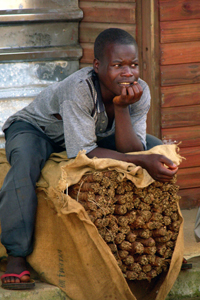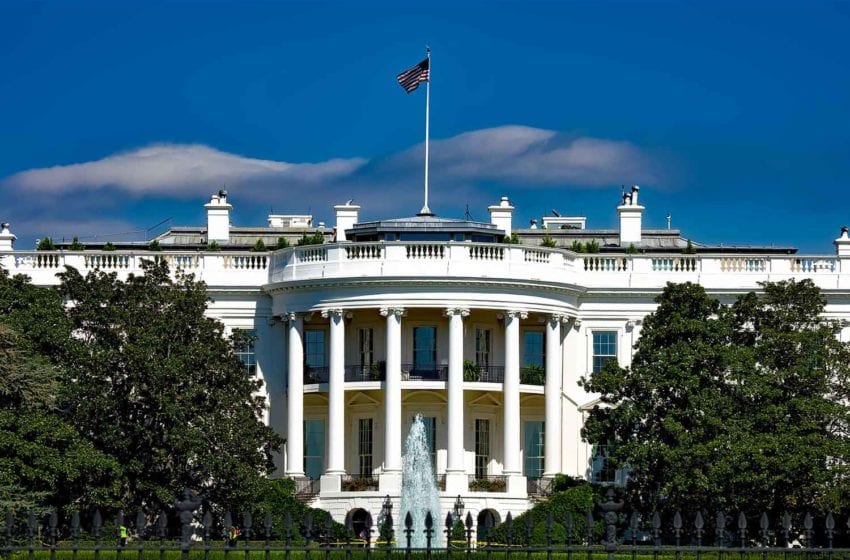The Boka Growers Forum helps tobacco farmers improve crop quality and sustainability.
By Timothy S. Donahue
Nothing seems easy for the tobacco farmer in Zimbabwe. Over the past decade, domestic production of the “green gold” has been a roller coaster ride. After plunging to 48.3 million kg in 2008, volumes have recovered, but the industry continues to face plenty of challenges. Shifting demand patterns, continued economic uncertainty and, lately, an El Nino-induced drought keep many farmers awake at night. And volumes are only half of the story—the key to competing in the global tobacco market is product quality.
To help Zimbabwean tobacco farmers increase crop quality, the Boka Tobacco Floors in 2011 launched the Boka Tobacco Growers Forum (BGF). “It is a unique platform dedicated to promoting and teaching good agricultural practices, sustainability, diversification and protection of the environment to tobacco growing communities,” says Chido Nyakudya, marketing and business development director for Boka Tobacco Floors. “The forum facilitates better understanding of trading requirements to tobacco growers that market their crop at our facility.”
The BGF is the largest tobacco forum in the country. Its key objective, according to Nyakudya, is to enable growers to achieve excellence through sustainable production of quality tobacco. The BGF is held twice a month at a carefully selected tobacco growing region. Farmers from surrounding areas come together to learn about proper growing techniques and sustainability. “The information the farmers acquire at our forum is useful for them throughout their tobacco cycle, from field to floor,” says Nyakudya.
Last year, during a forum held in Karoi in the Mashonaland West province, an estimated 1,000 growers gathered on a local farm to discuss tobacco. Beyond simply helping the farmers with ideas, the BGF is also building relationships between the farmer and other stakeholders. “The forum provides a platform for interaction among tobacco farmers and service providers, such as insurance companies, buyers, research institutions as well as government departments,” says Boka Tobacco Floors CEO Rudo Boka. “The program has helped to equip farmers with knowledge on what is required of them when they come to market themselves at the floors, as well as knowledge on increasing tobacco quality and yield with a strong focus on sustainability.”
In 2012, the year after the BGF began, Zimbabwean farmers produced 166.7 million kg and earned about $612 million. Overall, according to the Tobacco Industry and Marketing Board (TIMB), the tobacco industry pumped more than $1.2 billion into Zimbabwe’s economy that year. The quality of the tobacco has also risen significantly. Tobacco sold for an average of about $3.67 per kg in 2012, the highest since at least 1990, compared with $3.65 for Brazilian tobacco, one of the Zimbabwe’s biggest competitors, according to the Zimbabwe Tobacco Association.
The trend continues. Tobacco exports in 2015 earned Zimbabwe $867 million compared with $772.5 million in 2014, according to the TIMB. Tobacco exports in 2015 increased by 12 percent to 151.9 million kg compared to 135.5 million kg in 2014. In 2013, the country earned more than $1 billion from tobacco exports. The 2015 numbers may be slightly skewed due to poor rainfall that season. More importantly, says Boka, Zimbabwe has continued to find success in tobacco even as the number of farmers continues to decline.
According to the TIMB, the number of registered tobacco growers for the 2015–2016 cropping season has dropped by 20 percent from 70,161 in the 2014–2015 farming season. There were only 8,959 new growers for the 2015–2016 farming season, according to the TIMB, nearly half of the previous cropping season’s 16,400. In the 2013–2014 cropping season, at least 62 percent of those who grew tobacco were small- to medium-scale communal farmers. The decline in tobacco growers has been attributed to a decline in average selling price at the auction floors.
Boka says this isn’t as big of a problem as it may seem, because while farmers may be producing less, the quality has improved. “As we reach more farmers through events such as the forum, quality will continue to improve and market prices will increase along with demand,” says Boka, adding that, instead, one of the major challenges facing the forum has been the cost associated with holding the events. In order to help curb these costs, in October 2015 the BGF began requiring that all stakeholders pay a small attendance fee. “The fee has helped us to have more forums and to reach more farmers,” says Nyakudya.
Moving forward, Nyakudya says the forum will continue on its quest to prepare farmers well ahead of the coming tobacco season. “Farmers should be told of what is expected of them as they come to the floor with their leaf, and we are trying to give them as much information together with the other stakeholders,” she says. “This is the only way they can fetch high prices.”
box
The BTF empowers tobacco farmers through:
- Field days and facilitation of mentorship with master farmers
- Health and safety advisers
- Dialogue and networking with contractors, financiers, agricultural inputs suppliers and agricultural implements and mechanization providers
- Climate and weather advisers
- Agronomy, advisory and Extension service providers
- Regulatory stakeholders
- Boka Floors compliance officers
- Research and development institutions
- Energy providers and consultants
- Environment protection agencies and organizations
- Agricultural learning institutions
- Reforestation and pollution management institutions













